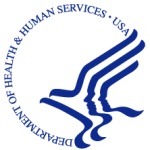- Industry: Government
- Number of terms: 33950
- Number of blossaries: 0
- Company Profile:
United States Department of Health and Human Services, Radiation Emergency Medical Management
A group of lung cancers that are named for the kinds of cells found in the cancer and how the cells look under a microscope. The three main types of non-small cell lung cancer are squamous cell carcinoma, large cell carcinoma, and adenocarcinoma. Non-small cell lung cancer is the most common kind of lung cancer.
Industry:Health care
An abnormal collection of fluid between the thin layers of tissue (pleura) lining the lung and the wall of the chest cavity.
Industry:Health care
An unstable form of a chemical element that releases radiation as it breaks down and becomes more stable. Radionuclides may occur in nature or be made in a laboratory. In medicine, they are used in imaging tests and in treatment. Also called radioisotope.
Industry:Health care
An anticancer drug that belongs to the family of drugs called alkylating agents.
Industry:Health care
The large vein that carries blood from the head, neck, arms, and chest to the heart.
Industry:Health care
The infusion of components of blood or whole blood into the bloodstream. The blood may be donated from another person, or it may have been taken from the person earlier and stored until needed.
Industry:Health care
A type of x-ray in which a picture of the body is recorded on paper rather than on film.
Industry:Health care
A case in which cancer cells are found in the body, but the place where the cells first started growing (the origin or primary site) cannot be determined. Also called carcinoma of unknown primary and CUP.
Industry:Health care
Surgery to remove the entire uterus, including the cervix. Also called total hysterectomy.
Industry:Health care
